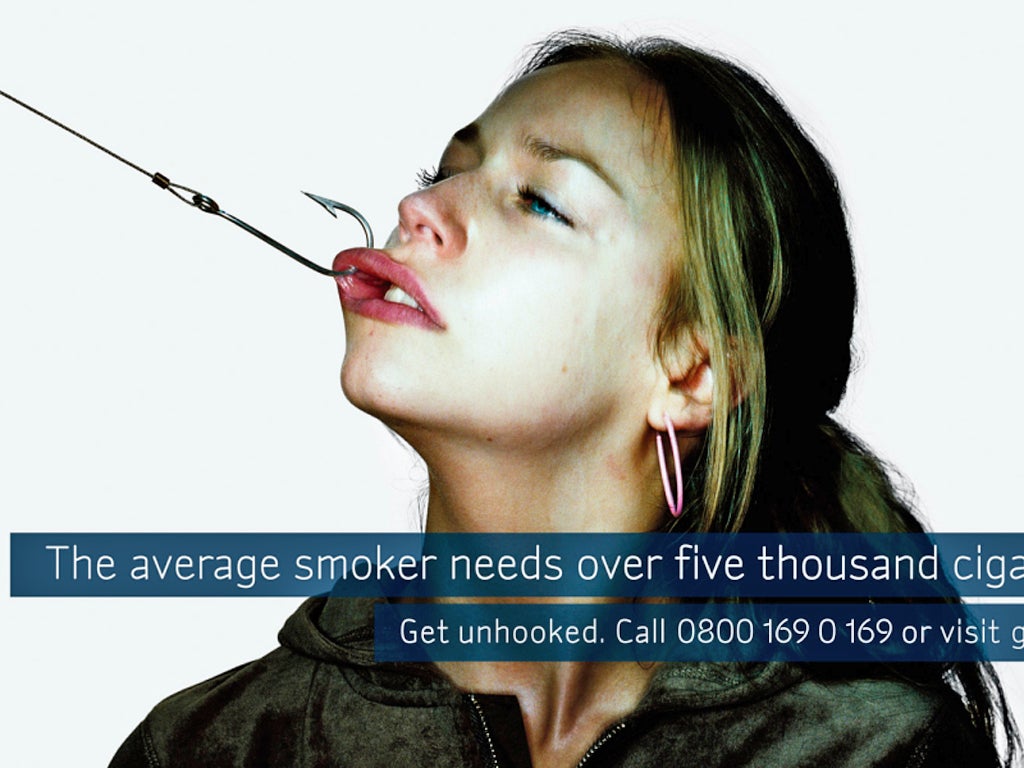Cabinet Office 'risking lives' as ad industry rebels against new system for running public health campaigns
'Francis Maude has disrupted a perfectly good system and replaced it with one which is bureaucratic and costly' says IPA head

Your support helps us to tell the story
From reproductive rights to climate change to Big Tech, The Independent is on the ground when the story is developing. Whether it's investigating the financials of Elon Musk's pro-Trump PAC or producing our latest documentary, 'The A Word', which shines a light on the American women fighting for reproductive rights, we know how important it is to parse out the facts from the messaging.
At such a critical moment in US history, we need reporters on the ground. Your donation allows us to keep sending journalists to speak to both sides of the story.
The Independent is trusted by Americans across the entire political spectrum. And unlike many other quality news outlets, we choose not to lock Americans out of our reporting and analysis with paywalls. We believe quality journalism should be available to everyone, paid for by those who can afford it.
Your support makes all the difference.The Cabinet Office has been accused of "putting lives at risk" after its £520m system for running vital public health campaigns was rejected today in an unprecedented act of rebellion by the British advertising industry.
The Institute of Practitioners in Advertising has written to Cabinet Office Minister Francis Maude to convey a "vote of no confidence" in the powerful Government Procurement Service which allocates contracts for campaigns on key issues such as drink driving, stopping smoking and healthy eating - including the Change 4 Life campaign.
In a letter to Mr Maude, the IPA director-general Paul Bainsfair warned of a "profound level of frustration" with the GPS process, which was controversially introduced by the Coalition Government when it closed the Central Office of Information in 2011.
Bainsfair, one of the most senior figures in British advertising, wrote: "The present system benefits no-one. It ties our members up in needless red tape, it swamps the GPS and renders its selection process haphazard and chaotic, it creates enormous frustrations within the departments that the GPS is meant to be serving - and, worst of all, it represents terrible value for the taxpayer."
Labour MP Helen Goodman said the GPS, which works with public bodies including the Department of Health and the Department for Transport, was putting public safety at risk. "Public information campaigns are of vital importance. Lives are at stake when we are talking about ending drink driving or stopping young people from taking up cigarettes," she said.
"Francis Maude has disrupted a perfectly good system and replaced it with one which is bureaucratic and costly. It's essential that the professional skills of advertisers can be harnessed to these important campaigns in the public interest."
At the time of the closure of the COI, Mr Maude declared: "This government has slashed unnecessary spending on communications." But the Cabinet Office then set up its own operation, the GPS, and the new body has proved unpopular from the start. The Independent revealed in March that the Government was being accused of "serious impropriety" over the handling of its valuable Communications Roster.
Advertising agencies were angry that a company linked to Mr Maude was successful in winning two prized places on the shortlist. The Devon-based agency Bray Leino, owned by The Mission Group (where Mr Maude was former non-executive chairman), won places on the roster for digital advertising (worth £120m of the total pot) and direct marketing (worth £160m of the total).
A spokesman for Mr Maude said at the time: "He has had no involvement with Mission Group for three years and had no knowledge that this framework was being set up."
But many advertising agencies complained to the IPA about various aspects of the GPS process and the advertising body's letter of complaint is unprecedented. It calls for a "senior panel of IPA representatives" to work with the GPS to develop an "improved approach". The letter was written after 13 months of failed dialogue between the ad industry and the GPS over problems with the process. Last week, at a meeting of the IPA Council, a unanimous vote of no confidence in the GPS was passed.
The IPA, which represents 250 advertising and marketing agencies, believes that the GPS process is structured to beat down price to such an extent that it becomes "unattractive" for many agencies to bid for government work.
When the GPS announced its roster earlier this year some agencies were angry that the roster appeared to have been selected solely on the basis of price, rather than considering the expertise accrued by some advertising groups, such as Leo Burnett, which was left off the shortlist despite a long record of producing road-safety campaigns. One agency head said: "Changing ingrained behaviour, such as over-eating and smoking, is not easy work. You need a quality team and experience because lives are at stake."
In response to the IPA letter, the Cabinet Office said today: "Every government relationship with a supplier should be achieving the best value for taxpayers, balancing quality with price. Marketing and communications are no different. Our comprehensive commercial reforms across Government saved £3.8bn last year. But we want to find the best way to build on this progress and will continue to work with suppliers and trade associations in the marketing and communications industry to understand concerns about this process and respond as appropriate. We welcome open and honest dialogue with the industry."
Join our commenting forum
Join thought-provoking conversations, follow other Independent readers and see their replies
Comments